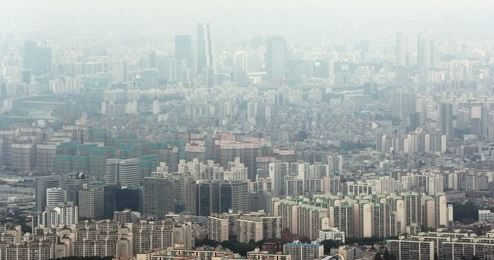South Korea's stricter lending rules will likely affect about 400,000 potential mortgage borrowers in "speculative districts" in Seoul and the administrative capital of Sejong in the second half of the year, officials said Thursday.
 |
(Yonhap) |
In its latest bid to rein in the overheating housing market, the government Wednesday designated all 25 wards in Seoul and two cities -- Sejong and Gwacheon, south of Seoul -- as "speculative or overheated speculative districts." In particular, 11 districts in Seoul and Sejong were designated "speculative districts" subject to far tougher taxes, financial regulations and state scrutiny.
The loan-to-value and debt-to-income ratios were cut to 40 percent in all those districts, limiting mortgages to 40 percent of their property value and a maximum 40 percent of their income for mortgage payments.
Citing data from top mortgage lender KB Kookmin Bank, financial authorities expected the designation to affect nearly 400,000 potential mortgage borrowers for the remainder of the year.
According to the data, the stricter lending rules are estimated to have an impact on nearly 81 percent of the lender's about 110,000 new mortgage borrowers in the latter half of the year.
The estimate is based on KB Kookmin Bank's share of the domestic mortgage market, which currently stands at approximately 22 percent.
The per-capita mortgage amount is also projected to tumble 31.3 percent to an average of 101 million won ($90,000) from 160 million won.
In light of that, total mortgage lending is expected to drop by about 20 trillion won in the second half, almost offsetting the 23 trillion won increase in the first half.
The tighter lending regulation came into effect Thursday in the 11 speculative areas, affecting apartments worth 600 million won and higher.
The government has been striving to cool the overheated housing market, which is cited as the main culprit for soaring household debt. South Korea's household debt stood at 1,360 trillion won at end-March, up from 1,343 trillion won a quarter earlier. (Yonhap)








![[Today’s K-pop] Blackpink’s Jennie, Lisa invited to Coachella as solo acts](http://res.heraldm.com/phpwas/restmb_idxmake.php?idx=644&simg=/content/image/2024/11/21/20241121050099_0.jpg)